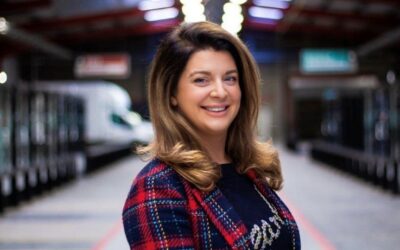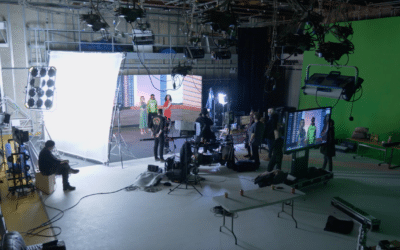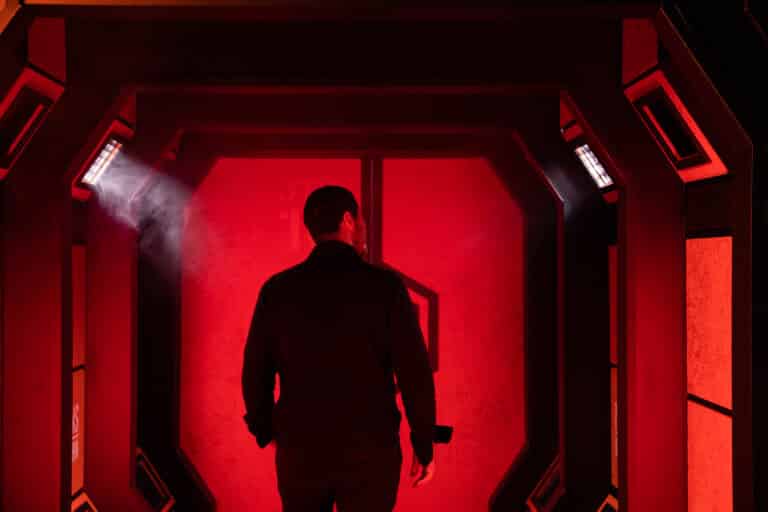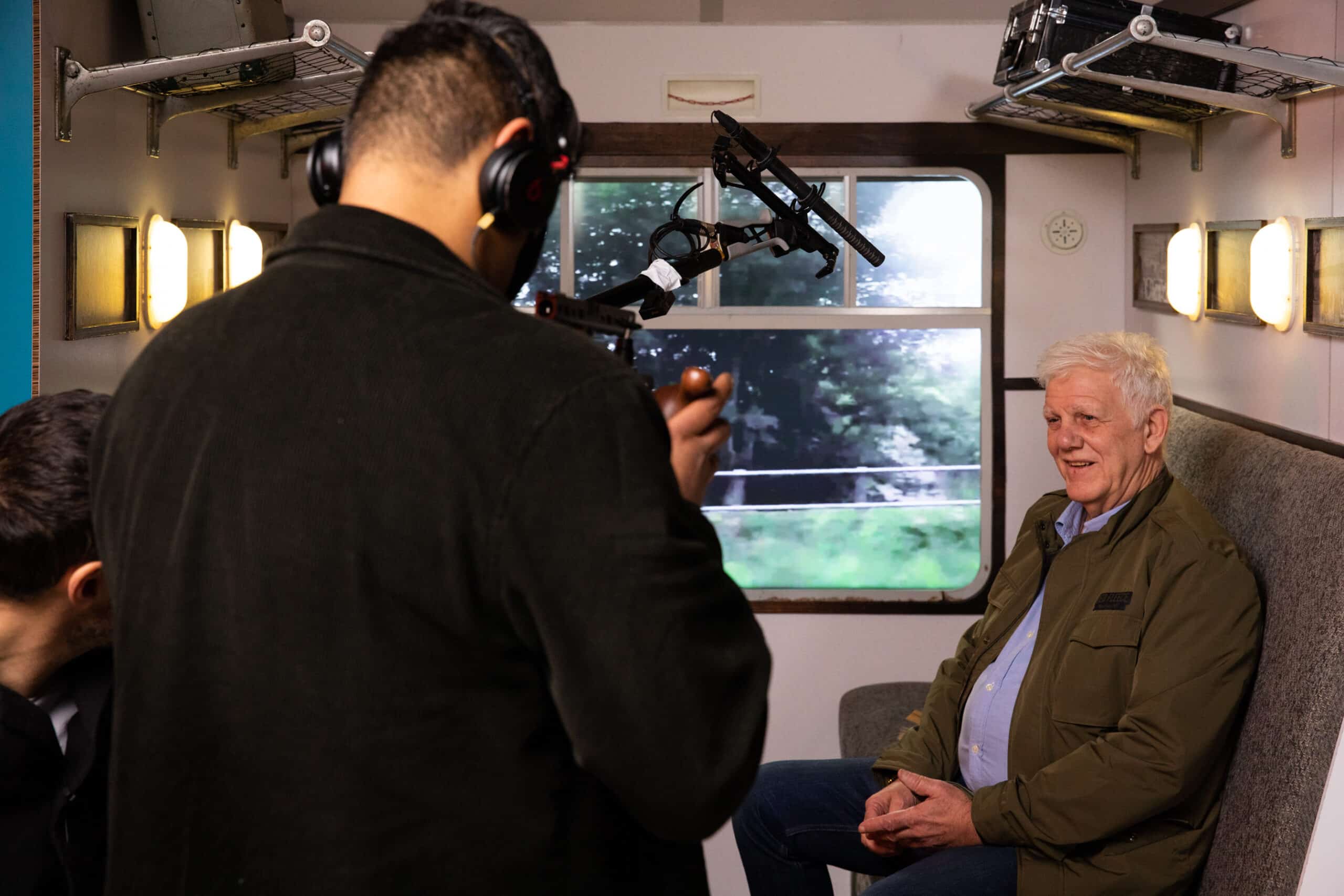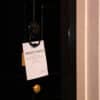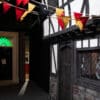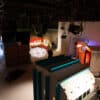Pictured: Tom Henderson in the Harry Potter train carriage set.
Snapping the clapperboard on the industry’s carbon footprint
With a career spanning decades in the film and TV industry, he has seen first-hand the impact the industry has on the environment.
“I used to be, for my sins, a global producer of commercials. I used to travel all over the world polluting everywhere and flying people in from all over the world,” he said.
He recalls a moment from five years ago where he was on a beach in the Dominican Republic.
While preparing to fly in 12 people for a commercial, he reflected, “this is bonkers, what are we doing?”
It was this experience that led him to setting up The Vectar Project, formerly known as Z Studios, to encourage the industry to adopt new solutions to tackle the industry’s waste problem.
“I literally had this lightbulb moment of setting up Vectar Project to look at full sustainability,” he explained. The company also launched two virtual production studios at its base last year and utilises solar panels and LED lighting.
From 10 Downing Street, the iconic front door currently steeped in political controversy, to a Harry Potter train carriage – the film studio is able to build replica or original sets within hours with its cardboard solution.
Recognising the “financial pressures on producers”, he hopes they will see the cost benefits of opting to use cardboard sets as an alternative.
“Producers get the benefit in that it is cheaper, faster, saves budget, studios gain because they can get more productions through.
“It’s not through want of trying, it’s just availability of how you do it. So hopefully we’ve got the know-how and people will start adopting it,“ he emphasised.
The film studio has already piqued the interest of ITV, BBC, BAFTA and Creative England since launching its cardboard sets. The cardboard sets have been used already in TV commercials and for an upcoming four-part drama for ITV and BBC.
“The interest that we’ve had has been unprecedented,” he explained.
Picture’s up – Lifting the curtain on cardboard sets
Among its impressive set creations made from cardboard, the film studio features a range of replica sets including Sherlock Holmes’ study, a bombed-out house and a BATMan Cave.
On how the cardboard sets work, he explained it is engineered cardboard which has the same strength and properties as MDF but is “up to 90% lighter”.
The “set for No 10 was built in about two hours and then it took another five to six to render it from all the facings and make it look authentic,” he said.
Using Vectar sets’ ‘cast iron’ cardboard prison door as another example, he explained it weighs around 1kg with the details down to the fittings and locks, aside from the metal handle, made entirely of cardboard.
The film studio has partnered with a paper company in Sweden which harvests trees instead of cutting them down with the branches used for the cardboard sets.
“There’s nothing that goes in a skip. It is bundled up and quickly recycled back into cardboard. So the whole life cycle is covered,” he said.
“We are looking at developing this for whole buildings as well because the structure is so light,” he added.
The future is green for the big and small screen
“With the best will in the world, I’m at an age now where I’ve only got two or three years left in the industry and we need to get this out to get people using it,” he said.
He doesn’t want to just encourage the film and TV industry to switch to cardboard sets – he plans to educate the industry on how to use and develop the sets globally too.
Beyond creating cardboard sets, the film studio is working with ScreenSkills, the training body for the film industry, to offer the skills for future university courses and apprenticeships.
He is keen to equip future generations with the tools to use and design the cardboard sets, to reduce the level of waste produced by the industry.
In November last year, the film studio also launched its first Vectar Artist apprenticeship and is set to take on more apprentices early this year.
The company is currently working with TV channels in Germany and Berlin Film School. With a network of around 50 Vectar set trained artists and design centres based across the world, The Vectar Project is on a mission to accelerate the roll-out of its cardboard sets.
As the industry seeks to transition to net zero emissions by 2050, the future of set building could be with cardboard.
“We just want to get it out there and get people working in this way. At the end of the day, with the amount of waste that we go through,” he added, “that’s exactly what we need to do”.
“We’re not trying to put people out of jobs, we’re trying to enrich the industry by giving them more options, and if they can do things cheaper, faster and sustainably – brilliant,” he said.

